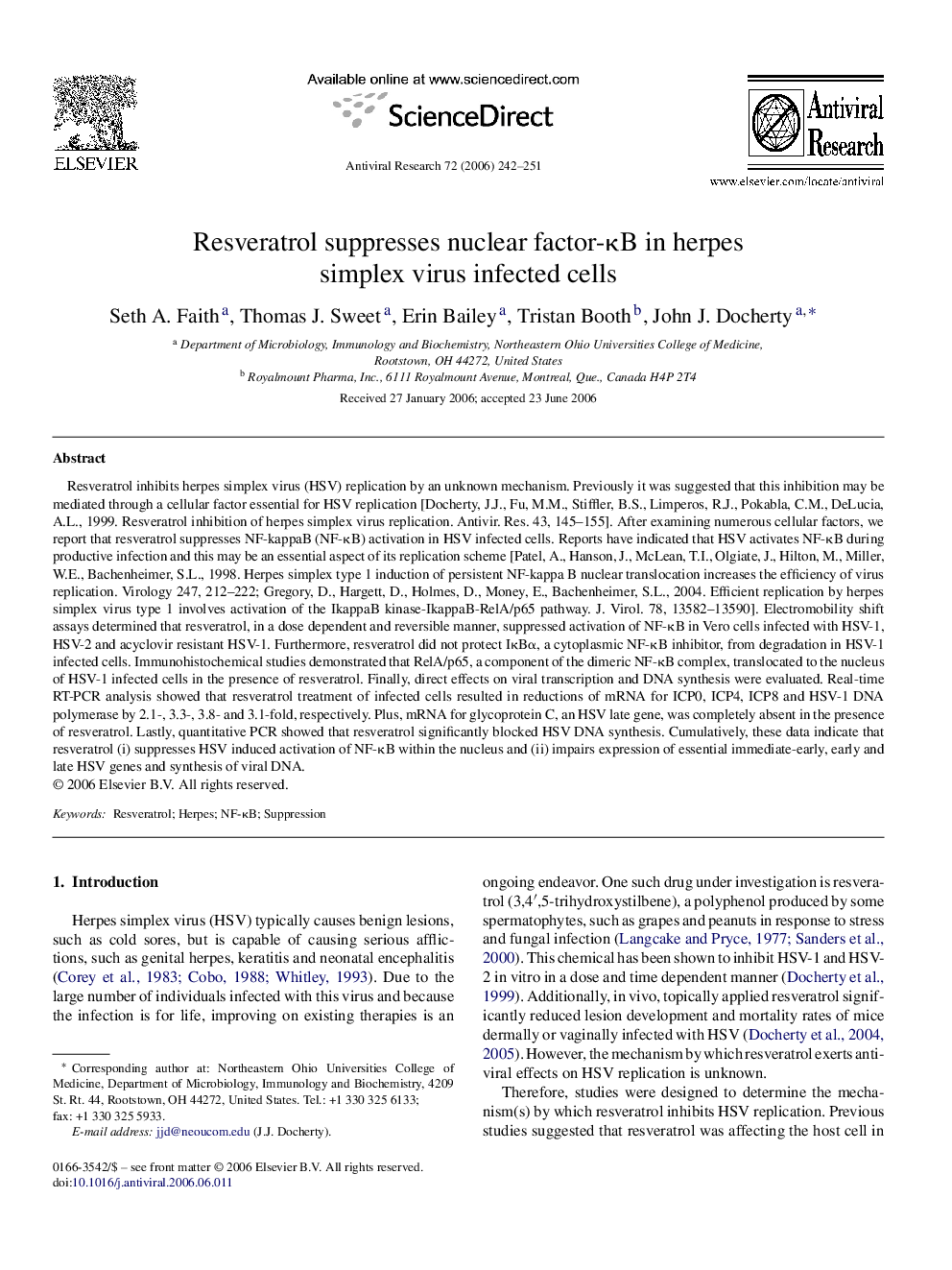| کد مقاله | کد نشریه | سال انتشار | مقاله انگلیسی | نسخه تمام متن |
|---|---|---|---|---|
| 2511678 | 1118029 | 2006 | 10 صفحه PDF | دانلود رایگان |

Resveratrol inhibits herpes simplex virus (HSV) replication by an unknown mechanism. Previously it was suggested that this inhibition may be mediated through a cellular factor essential for HSV replication [Docherty, J.J., Fu, M.M., Stiffler, B.S., Limperos, R.J., Pokabla, C.M., DeLucia, A.L., 1999. Resveratrol inhibition of herpes simplex virus replication. Antivir. Res. 43, 145–155]. After examining numerous cellular factors, we report that resveratrol suppresses NF-kappaB (NF-κB) activation in HSV infected cells. Reports have indicated that HSV activates NF-κB during productive infection and this may be an essential aspect of its replication scheme [Patel, A., Hanson, J., McLean, T.I., Olgiate, J., Hilton, M., Miller, W.E., Bachenheimer, S.L., 1998. Herpes simplex type 1 induction of persistent NF-kappa B nuclear translocation increases the efficiency of virus replication. Virology 247, 212–222; Gregory, D., Hargett, D., Holmes, D., Money, E., Bachenheimer, S.L., 2004. Efficient replication by herpes simplex virus type 1 involves activation of the IkappaB kinase-IkappaB-RelA/p65 pathway. J. Virol. 78, 13582–13590]. Electromobility shift assays determined that resveratrol, in a dose dependent and reversible manner, suppressed activation of NF-κB in Vero cells infected with HSV-1, HSV-2 and acyclovir resistant HSV-1. Furthermore, resveratrol did not protect IκBα, a cytoplasmic NF-κB inhibitor, from degradation in HSV-1 infected cells. Immunohistochemical studies demonstrated that RelA/p65, a component of the dimeric NF-κB complex, translocated to the nucleus of HSV-1 infected cells in the presence of resveratrol. Finally, direct effects on viral transcription and DNA synthesis were evaluated. Real-time RT-PCR analysis showed that resveratrol treatment of infected cells resulted in reductions of mRNA for ICP0, ICP4, ICP8 and HSV-1 DNA polymerase by 2.1-, 3.3-, 3.8- and 3.1-fold, respectively. Plus, mRNA for glycoprotein C, an HSV late gene, was completely absent in the presence of resveratrol. Lastly, quantitative PCR showed that resveratrol significantly blocked HSV DNA synthesis. Cumulatively, these data indicate that resveratrol (i) suppresses HSV induced activation of NF-κB within the nucleus and (ii) impairs expression of essential immediate-early, early and late HSV genes and synthesis of viral DNA.
Journal: Antiviral Research - Volume 72, Issue 3, December 2006, Pages 242–251